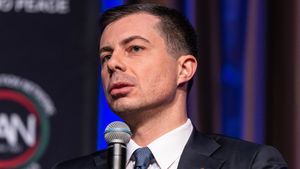It seems impossible, in retrospect, that I managed to avoid seeing Andrew Lloyd Webber's Cats as long as I did. A drama critic for 16 years and a lifelong musical theater fan, I came of age in the 1980s, a decade in which commercial musical theater was dominated by Lloyd Webber and the bombast that characterized his shows (and those of a few fellow spirits), right down to their ad campaigns. "Now and forever," Cats' proclaimed, to which I muttered, "Not in this lifetime."
But now indeed, like Donald Trump, Cats is back, and I thought that out of professional diligence I should at least check out the latter's second act. (The original Broadway production closed just as I was starting to review theater, in 2000, after a run of nearly 18 years.) I was also genuinely curious as I arrived at the Neil Simon Theatre last Monday, accompanied my daughter, who at nine is likely closer in age to most cast members in the new revival than I am.
The youth of the company turned out to be a key factor, even if the behind-the-scenes players in this staging--based, like the original, in the U.K.--are predominantly old-timers, led by original director Trevor Nunn. (Scenic and costume designer John Napier and Lloyd Webber's co-orchestrator David Cullen have also been retained from the original production, though Hamilton's Andy Blankenbuehler was enlisted to provide choreography "based on" Gillian Lynne's.) Cats' bombast is inextricably linked to its score, which most people over 35 either love or hate. I became acquainted with it, as most did, through the once-inescapable ballad "Memory," a song that seemed to congeal in my ears on contact. The rest of Cats' music remains, for me, largely forgettable, a slick pastiche nodding to music hall as well as the electronic pop of its day and the classic and orchestral rock Lloyd Webber has always cherished, now being celebrated in his adaptation of School of Rock. If none of the other tunes quite match "Memory"'s unctuousness, they also lack its ear-worm quotient.
Yet there were these young performers at the Neil Simon, presenting this material I'd dismissed so readily and for so long with a relish that clearly owed to more than Nunn's coaxing, or their relief in having steady jobs. Their enthusiasm was infectious, and carried with it a spirit of camaraderie and empathy that I couldn't reconcile with my long-held perception of the show--based, admittedly, on recordings and excerpts--as brassy and superficial.
It occurred to me that they had been introduced to Cats, and to Lloyd Webber generally, in a completely different context than I was. By the time most of them were taking dance classes and acting in school productions, his oeuvre was already becoming the stuff of nostalgia. As millennials, they had surely been weaned on megamusicals--Lloyd Webber's The Phantom of the Opera, Les Miserables, The Lion King--but grew up in a mass culture steeped increasingly in willful irony. The hit musicals of their teen years and young adulthood, from The Producers to The Book of Mormon, owed little of their appeal to either spectacle or sentiment--or music, for that matter.
But if pop culture has taught us anything in the past decade or so, it's that the greatest sin in art isn't sentimentality, but the fear of it. The heart cannot be ignored, in good or bad times, and cer-tainly not in a medium in which characters regularly break into song and dance. Even the most famously clever of musical theater artists, Stephen Sondheim--Oscar Hammerstein II's protege, lest we forget--has always understood this, and put the emotional acuity of his music and lyrics first. Hamilton's Lin-Manuel Miranda, an enormous fan of both Sondheim and Lloyd Webber, does the same.






































































